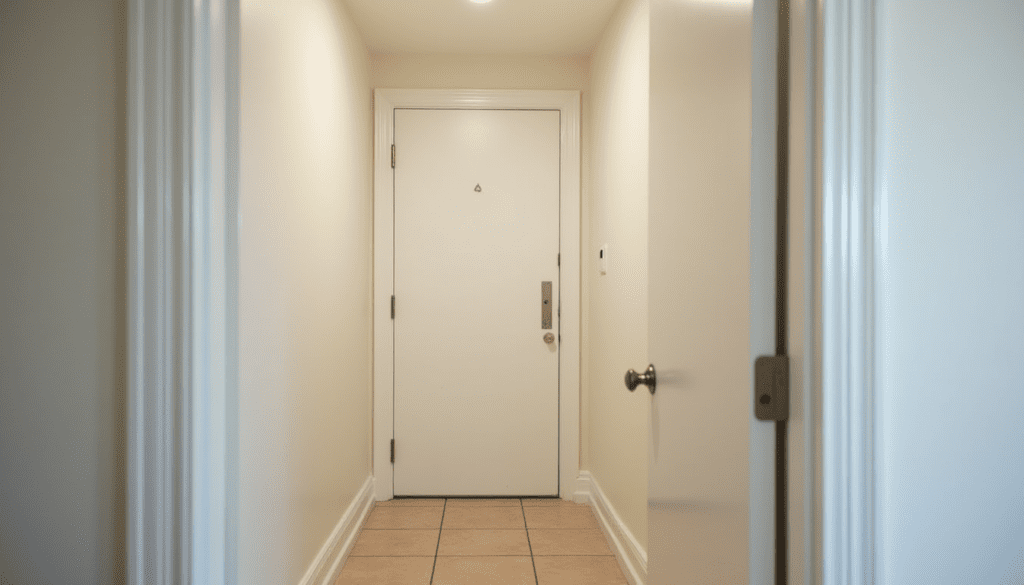Late rent payments can create serious challenges for landlords in Caldwell, NJ. Whether it is disrupting your cash flow, delaying mortgage payments, or adding stress to your property management routine, dealing with tenants who consistently pay rent late requires a mix of clear communication, strong lease terms, and an understanding of local and state laws. The key is to handle the issue in a way that is both firm and legally compliant, while still maintaining a professional relationship with your tenant.
In this guide, we’ll explore strategies and best practices for managing tenants who are habitually late on rent in Caldwell, NJ. From understanding local rent regulations to creating effective late-rent policies and sending legal notices when necessary, landlords can take steps to protect their investments and encourage timely payments.
Understanding Caldwell’s Legal Landscape
Before addressing habitual late rent payments, landlords in Caldwell need to understand the town’s rental oversight and the broader New Jersey laws that apply. Caldwell, NJ has a Rent Review Board, which provides local oversight of rental issues, including disputes between landlords and tenants. While Caldwell does not have the same type of strict rent control found in larger cities, the Rent Review Board is an important resource for landlords navigating tenant concerns.
Landlords must also remember that New Jersey has some of the most tenant-friendly laws in the nation. This means handling late payments requires careful adherence to the correct legal processes, such as sending formal notices before filing any eviction action. Failing to follow the correct process could result in delays, court dismissals, or even penalties for the landlord.
Caldwell Rent Review Board Overview
The Caldwell Rent Review Board serves as a local authority to review and mediate rent-related disputes. If a tenant challenges a rent increase or raises issues about unfair treatment, the Board may intervene. While it does not set rent ceilings, landlords should be aware that tenants have the option of seeking support from the Board when conflicts arise. This highlights the importance of properly documenting late payments and showing that you are operating fairly and in compliance with the law.
Local Rent Control Laws (if any)
Caldwell does not impose strict rent control, but landlords must remain aware of statewide statutes governing notices, late fees, and eviction proceedings. The New Jersey eviction process, for instance, recognizes “habitual late payment of rent” as a valid cause for removal, but only after sufficient evidence and prior notices are presented to the court (HNW Law).
Know New Jersey’s Grace Period
New Jersey law gives tenants a mandatory grace period for rent. According to N.J.S.A. 2A:42-6.1, landlords must allow a minimum of five business days for rent to be paid before it is officially considered late. This applies to most residential rental agreements unless otherwise exempt.
For landlords in Caldwell, this means you cannot legally charge late fees or take legal action until the grace period has passed. If rent is due on the 1st of the month, a tenant still has until the 5th business day to pay before penalties apply. This law is important to remember when setting rent due dates and structuring your lease agreements.
Lease Terms & Late Rent Policies
One of the strongest tools landlords have against late payments is a clear lease agreement. A well-written lease sets the foundation for expectations, consequences, and remedies if rent is not paid on time. In Caldwell, NJ, leases must align with both local ordinances and state laws, particularly regarding late fees and notices.
Defining Rent Due Date
The lease should clearly state the rent due date, typically the first of the month, while also acknowledging New Jersey’s five-day grace period. By putting these details in writing, you prevent disputes later. For example, instead of vaguely saying “rent is due monthly,” the lease should read: “Rent is due on the first of each month, with a five-day grace period as required by New Jersey law.”
Permissible Late Fees & Disclosures
Landlords in Caldwell may charge late fees, but they must be reasonable, disclosed in the lease, and only applied after the grace period has expired. Courts in New Jersey often scrutinize late fees, so excessive or hidden charges may be rejected if challenged. A transparent late-fee policy (such as a flat $50 fee or 5% of monthly rent) is more enforceable and less likely to create disputes.
To strengthen your position, consider including language that repeated late payments may result in a Notice to Cease, which is a legally recognized step toward eviction proceedings in New Jersey (NJEvict.com).
Effective Late Payment Communication
When tenants miss payments, communication is critical. Landlords in Caldwell should adopt a step-by-step approach to managing late rent while keeping documentation for each interaction. Courts often look for evidence of communication before granting eviction, so maintaining records can be the difference between winning or losing a case.
Friendly Reminders & Documentation
Start with a polite reminder. A phone call, text message, or email reminding tenants of the missed payment can often resolve the issue quickly. Always follow up with written communication, such as a formal late rent notice. Documentation is essential not only for your records but also for presenting evidence if legal action becomes necessary.
Consider using online rent collection systems, which automatically send reminders and generate records of payments and delays. This creates a paper trail that benefits landlords should the issue escalate to court.
Sending Pay-or-Quit or Notice to Cease
If reminders are ignored, landlords may escalate by sending a “Pay-or-Quit” notice or a “Notice to Cease.” In New Jersey, a Notice to Cease is often the first legal step toward eviction for tenants who are consistently late with rent. It serves as a formal warning that continued late payments will not be tolerated and can lead to removal proceedings. According to HNW Law, courts often require proof that such notices were served before allowing eviction on the grounds of habitual late payments.
Implementing Payment Plans & Flexibility
Not all tenants who pay rent late are acting irresponsibly. Many times, financial challenges such as job loss, medical bills, or unexpected expenses can put them behind. For landlords in Caldwell, NJ, offering structured payment plans can be a smart way to recover overdue rent while maintaining a positive landlord-tenant relationship.
Payment plans should always be documented in writing. A clear agreement should outline the amount due, payment schedule, and consequences if the tenant fails to honor the arrangement. For example, a landlord might allow the tenant to pay an extra $200 each month until the overdue balance is cleared. This approach balances firmness with fairness, showing courts that you attempted reasonable solutions before pursuing eviction.
Some landlords also use “rent deferment agreements,” where part of the rent is temporarily postponed and added to future months. While this strategy may not be ideal long term, it can be effective in keeping tenants current without pushing them into default.
Legal Notices & Escalation Steps
If late payments persist despite reminders and payment plans, landlords must begin the formal legal process. In New Jersey, this usually involves issuing a Notice to Cease, followed by a Notice to Quit if the tenant continues to pay rent late. These notices are essential steps to establish a record of habitual lateness before filing for eviction in court.
Notice to Cease vs. Notice to Quit
A Notice to Cease acts as a final warning to the tenant. It informs them that their behavior is unacceptable and must stop immediately. For habitual late rent, this is a critical document because New Jersey courts require landlords to show that the tenant was warned before eviction proceedings begin (NJEvict.com).
If the tenant continues to pay late after receiving a Notice to Cease, the landlord may then issue a Notice to Quit. This document effectively terminates the tenancy, allowing the landlord to proceed with eviction. Both notices must comply with New Jersey law and should be served in a way that can be documented, such as certified mail or professional service.
Court-Level Requirements for Habitual Late Rent
New Jersey courts define “habitual late payment” as more than one or two isolated incidents. According to HNW Law, landlords must prove a consistent pattern of late rent payments, supported by documentation such as rent ledgers, notices, and correspondence with the tenant. Without this evidence, judges may dismiss the case, leaving the landlord to start over.
This makes it crucial to keep detailed records of every late payment and every notice sent. Digital rent collection platforms are especially useful here, as they automatically generate reports that can serve as evidence in court.
Preparing for Possible Eviction
Eviction should always be the last resort for landlords in Caldwell, NJ. It is time-consuming, stressful, and costly, but in some cases, it becomes the only option to resolve habitual late rent. Preparing for eviction requires careful adherence to New Jersey landlord-tenant law.
Once a Notice to Quit has been issued and the tenant has failed to correct the behavior, landlords may file a complaint in landlord-tenant court. At this stage, judges will review the evidence to determine if the tenant’s pattern of late payments qualifies as “habitual.” A single late payment is never enough; landlords must show repeated lateness across multiple months.
It is also worth noting that eviction courts in New Jersey are generally sympathetic to tenants, especially when hardship can be proven. However, if the landlord has consistently followed legal requirements, issued the correct notices, and documented everything properly, the courts will often rule in their favor. This is why landlords should view eviction as the final step in a carefully managed process, not the starting point.
What Courts Consider in Habitual Late Cases
Court decisions on habitual late payments often take into account:
- The number of times rent was late over a period of months
- Whether the landlord issued formal Notices to Cease
- Whether the landlord offered reasonable accommodations (such as payment plans)
- Whether the tenant has shown good faith effort to pay
Judges are more likely to rule in favor of landlords who demonstrate that they acted fairly, gave multiple opportunities for correction, and strictly followed the law (HNW Law).
Tenant Protections & Assistance Programs
While landlords in Caldwell have rights, tenants also benefit from legal protections and assistance programs designed to prevent homelessness. Landlords who understand these protections are better equipped to manage conflicts and avoid unnecessary disputes.
Caldwell Borough’s Rent Review Board
Tenants facing financial hardship may appeal to the Caldwell Rent Review Board for support. While the Board does not erase late rent, it can mediate disputes over payment arrangements or rent increases. If a tenant escalates an issue here, landlords should be prepared to present clear documentation of late payments and steps taken to resolve the issue.
Eviction Prevention & Rental Assistance Options
Tenants in New Jersey, including those in Caldwell, can access state and county-level assistance programs. These programs help tenants catch up on late rent, often paying landlords directly. By cooperating with these programs, landlords may recover overdue rent faster and avoid lengthy eviction battles.
Examples of support include the New Jersey Department of Community Affairs Rental Assistance Program and county-level emergency rental funds. Partnering with tenants to explore these resources can create win-win outcomes: tenants stay in their homes, and landlords receive the rent they are owed.
Using Online Rent Systems & Record-Keeping
Technology has become one of the most powerful tools for landlords managing late rent. Online rent collection systems not only make it easier for tenants to pay on time, but they also create a digital record of all transactions. These records are invaluable if disputes end up in court.
Platforms such as Buildium, Avail, and AppFolio allow tenants to set up automatic payments, receive reminders, and even pay with credit cards. For landlords in Caldwell, these systems simplify the process of collecting rent while providing proof of when payments were made or missed.
Beyond rent collection, digital systems can also help track lease agreements, send notices, and store correspondence. Having this information organized in one place makes it easier to respond quickly to tenant issues and demonstrate compliance if legal disputes arise.
For added protection, landlords should back up digital records and maintain paper copies of critical documents such as signed leases and court notices. Combining technology with traditional documentation ensures you are always prepared if a tenant’s late payments escalate to a legal matter.
Balancing Firm Enforcement with Fairness
Landlords in Caldwell, NJ, must walk a fine line between enforcing lease terms and maintaining good tenant relationships. While it is important to be consistent and firm when rent is late, showing fairness and understanding can go a long way in resolving disputes without escalating them.
For example, a tenant who has always paid on time but experiences one unexpected setback should not be treated the same as a tenant who is consistently late month after month. Differentiating between isolated issues and habitual behavior helps landlords build credibility and trust with tenants, while also making a stronger case in court if eviction becomes necessary.
Fairness also means being transparent. Tenants should always understand the consequences of late payments, how late fees are applied, and what the next steps will be if lateness continues. Documenting every step ensures both sides are on the same page.
Monitoring & Reviewing Tenant Behavior Over Time
One of the best strategies for dealing with late rent is consistent monitoring. Landlords who keep detailed rent ledgers, track payment histories, and review tenant behavior regularly are better positioned to identify problems early. A pattern of late rent that emerges over several months may indicate larger financial issues, which could eventually lead to nonpayment.
Conducting quarterly or semi-annual reviews of tenant payment histories can help landlords decide whether to continue leases, renew agreements, or prepare for possible legal action. Keeping these reviews formal and documented strengthens your position if disputes ever reach the New Jersey landlord-tenant courts.
By staying proactive, landlords in Caldwell can avoid surprises, plan ahead for cash flow management, and protect their investments more effectively.
Case Examples & Best Practices
Looking at real-life situations can provide valuable insight into best practices for managing tenants who consistently pay rent late. Here are some scenarios landlords in Caldwell might encounter:
- The One-Time Emergency: A tenant pays late due to a temporary hardship but quickly corrects the problem after communication. In this case, offering a payment plan or waiving a one-time fee can build goodwill and prevent future issues.
- The Chronic Late Payer: A tenant pays late almost every month, even after reminders and warnings. Here, issuing a Notice to Cease and documenting each instance is the best way to prepare for possible eviction.
- The Struggling Tenant with Potential Assistance: A tenant consistently struggles but qualifies for rental assistance. Working with programs like the Caldwell Rent Review Board or state-level aid can help landlords receive overdue rent while giving tenants the support they need.
Best practices include maintaining detailed records, using online rent collection systems, and consulting resources like NJEvict.com to stay compliant with New Jersey law. By combining legal knowledge with practical communication strategies, landlords can reduce conflicts and improve rental management outcomes.
Summary: Best Practices for Landlords in Caldwell
Managing tenants who consistently pay rent late in Caldwell, NJ, requires a balance of legal compliance, clear communication, and proactive strategies. The most effective landlords follow a structured approach:
- Know New Jersey’s legal grace period and Caldwell’s Rent Review Board rules
- Include clear lease terms that outline due dates, late fees, and escalation steps
- Use friendly reminders and formal notices, keeping thorough documentation
- Offer reasonable payment plans when appropriate, but don’t allow abuse
- Escalate to a Notice to Cease and Notice to Quit only after repeated lateness
- Prepare for court with strong evidence if eviction becomes unavoidable
- Explore rental assistance programs before eviction to secure payment
By following these practices, landlords can protect their property investments while ensuring they remain fair, professional, and compliant with New Jersey’s tenant protection laws.
FAQs
How can landlords legally address tenants who pay rent late in Caldwell, NJ?
Landlords should start with reminders and written notices. If lateness continues, they must issue a Notice to Cease and, eventually, a Notice to Quit before filing for eviction.
What rent grace period applies in New Jersey?
New Jersey law grants tenants a mandatory five-business-day grace period before rent is considered late (Justia).
Are late fees allowed under New Jersey law?
Yes, but they must be reasonable, disclosed in the lease, and charged only after the grace period ends.
Does Caldwell have rent control?
Caldwell does not impose strict rent control, but the Rent Review Board mediates rent-related disputes.
Can landlords offer payment plans to late-paying tenants?
Yes, payment plans are an effective way to recover overdue rent while maintaining good landlord-tenant relationships, provided the terms are clear and documented.
When can a Notice to Cease or Notice to Quit be issued?
A Notice to Cease is issued after repeated late payments, warning the tenant to stop the behavior. A Notice to Quit follows if the tenant continues paying late, allowing eviction proceedings to begin.
What assistance programs are available to tenants in Caldwell?
Tenants may access state rental assistance programs, county-level funds, and support through the Caldwell Rent Review Board.
Need professional guidance managing tenants in Caldwell? Contact RentShield Property Management today for expert help in handling late rent, legal notices, and tenant communication.







